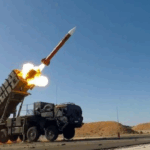As temperatures soar and the long summer begins to blanket Egypt, the country finds itself once again in the grip of an unsettling ritual: power cuts, factory slowdowns, and urgent government appeals for conservation. Behind this annual drama lies a deeper crisis—Egypt’s escalating scramble for natural gas, a commodity that has come to define not just its economic future but its very sovereignty.
In recent weeks, Egypt has drastically reduced gas supplies to critical sectors like petrochemicals and fertilizers—some by as much as 50%. The immediate cause is a routine maintenance shutdown at Israel’s Leviathan gas field. But for many Egyptians, this isn’t just about a technical hiccup—it’s a stark reminder of how dependent their country has become on a foreign supplier, and one entangled in its own volatile conflict next door.
It wasn’t supposed to be this way.
Back in 2015, when Egypt discovered the giant Zohr gas field off its Mediterranean coast, there was a palpable sense of national pride. Newspapers declared a new era of energy independence. President Abdel Fattah el-Sisi proudly announced that Egypt had “scored a goal.” With gas powering over 60% of the nation’s electricity, the vision was ambitious: Egypt would become a self-sufficient energy powerhouse and a major export hub, linking Eastern Mediterranean gas to European markets.
But that dream has faded. In just a few years, Zohr’s production declined sharply—far sooner than anticipated. Experts now believe its reserves were overestimated. Technical problems, blamed on a rush to extract and sell gas during the energy crunch triggered by the Ukraine war, further damaged the field. Egypt’s impatience, once marketed as strategic agility, may have irreversibly weakened its energy future.
As production faltered, Egypt’s economic woes deepened. A relentless foreign currency crisis and billions in unpaid debts to international energy companies stifled investment. By 2023, the country that once hoped to dominate the region’s gas market was back to being a net importer. And by 2024, an astonishing 72% of those imports came from just one place: Israel.
For everyday Egyptians, this growing dependence is more than just an economic issue—it’s a political and psychological one. The notion that the lights in Cairo or Alexandria, or the air conditioning in a hospital, might rely on the goodwill of a country many still view with suspicion, is deeply unsettling. And in times of crisis, it becomes a source of national anxiety.
This vulnerability was painfully exposed in October 2023 when war erupted between Israel and Hamas. Citing security concerns, Israel forced Chevron to halt production at its Tamar gas field. The result? A sudden and sharp drop in gas supplies to Egypt. Another disruption came in May 2024, this time masked as “maintenance,” but widely understood by Egyptian analysts as a political message from Tel Aviv.
These energy disruptions couldn’t have come at a worse time. As tensions rise over Israel’s war in Gaza, Egypt is walking a tightrope. Cairo is fiercely opposed to any Israeli plan—public or covert—to push Gaza’s population into the Sinai Peninsula. The idea of over a million displaced Gazans, including Hamas fighters, pouring into Egyptian territory is viewed as an existential threat. Not just because of the logistical burden, but because it risks destabilizing the Sinai, a region only recently pacified after a long and bloody insurgency.
The irony is painful. Egypt, the largest Arab nation, finds itself diplomatically cornered. Its moral outrage at the Gaza war is muted by the very gas contracts that keep its cities running. It has withheld appointing a new ambassador to Israel, a symbolic protest. But behind the scenes, Cairo must be careful not to provoke Israel too strongly. The cost could be blackouts, economic collapse—or worse.
Making matters more complex, Egypt is already straining under the weight of over 1.2 million Sudanese refugees, who arrived after civil war broke out in Sudan in 2023. Each new arrival means more demand for housing, food, jobs—and energy. The country’s energy grid, already stretched, is on the brink.
So what’s Egypt doing?
Desperation has driven innovation. Cairo is rapidly diversifying its sources. A thaw in relations with Turkey opened new doors. President el-Sisi visited Ankara in September 2024, and Turkish President Erdoğan returned the gesture with a trip to Cairo in December. The visits resulted in a major agreement to lease a Turkish Floating Storage and Regasification Unit (FSRU)—a floating terminal that allows Egypt to import liquefied natural gas (LNG) from other suppliers. It’s a stopgap, but a crucial one.
In parallel, Egypt is in advanced negotiations with Qatar for long-term gas contracts and is drilling aggressively at home. Over the past year, the Ministry of Petroleum claims to have made 40 new discoveries and begun drilling 75 new wells. These efforts are promising, but they are years away from delivering meaningful volumes.
The government is also betting big on renewables, aiming to generate 42% of its electricity from green energy by 2035. But the upfront costs are steep, and solar or wind won’t cool Egyptian homes this summer.
For now, Egypt remains in a precarious position—its fate tethered to pipelines that cross volatile territory, and its foreign policy constrained by energy insecurity. What began as a bold energy vision has become a cautionary tale. The very gas once meant to empower Egypt now serves as a leash—one pulled tighter with every geopolitical flare-up in the region.
To break free, Egypt must do more than sign new deals or drill new wells. It needs a strategic shift—one that prioritizes long-term resilience over quick wins, and one that reclaims the promise of energy sovereignty that once seemed so close.
Until then, the nation waits—its people sweating through the heat, its factories running on half-capacity, its leaders calculating every move with an eye on the fuel gauge.
Read more here.







